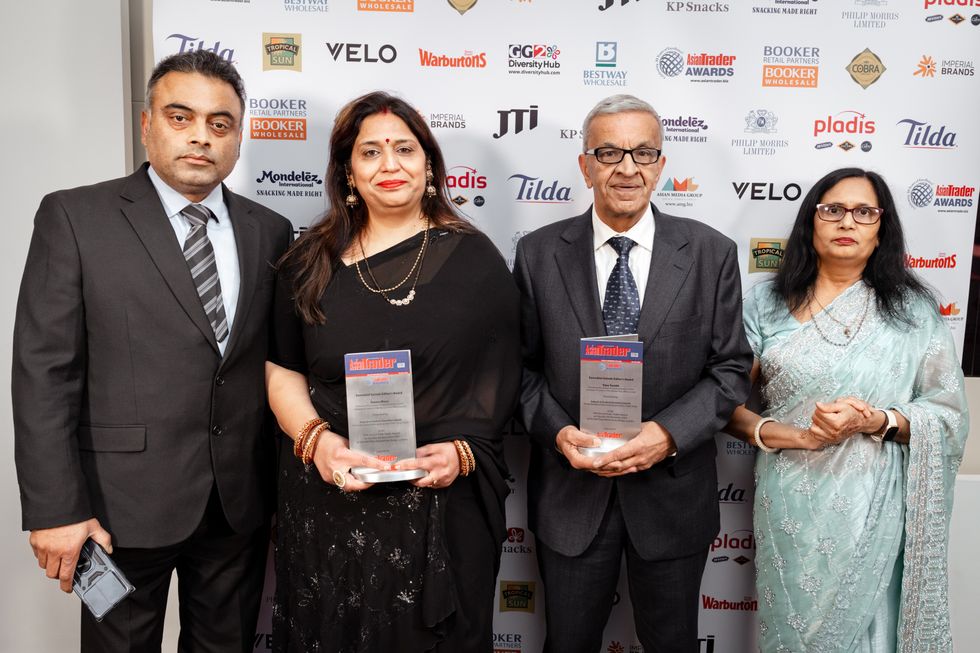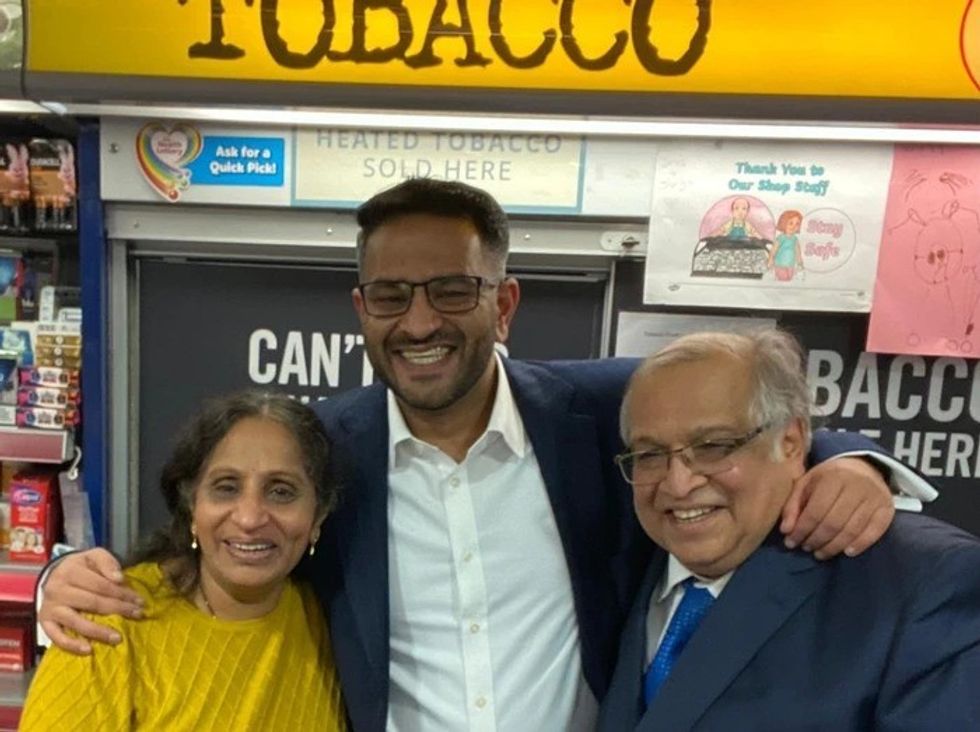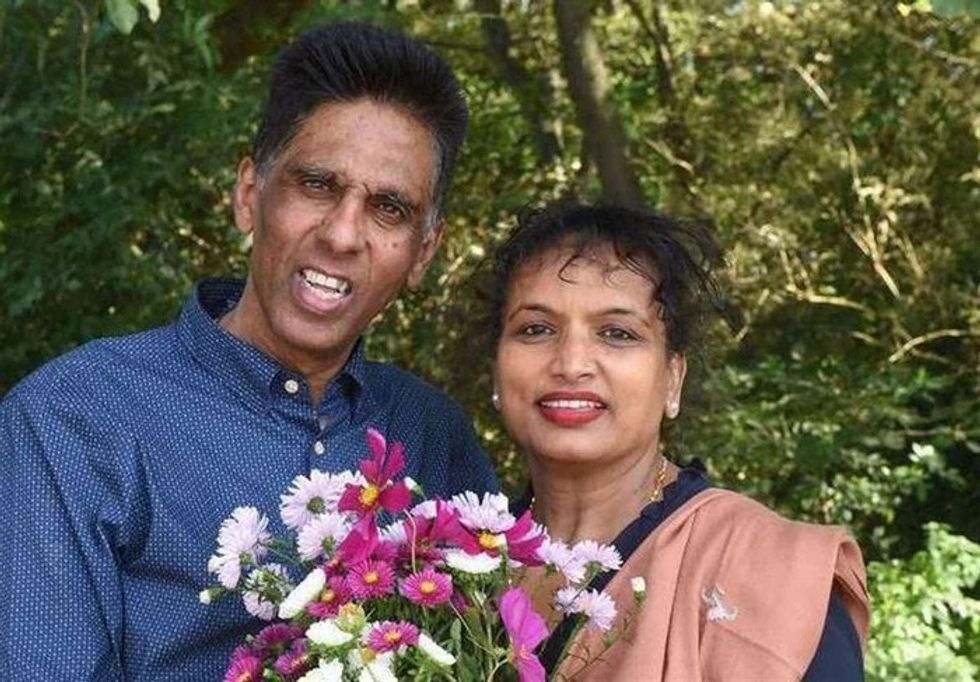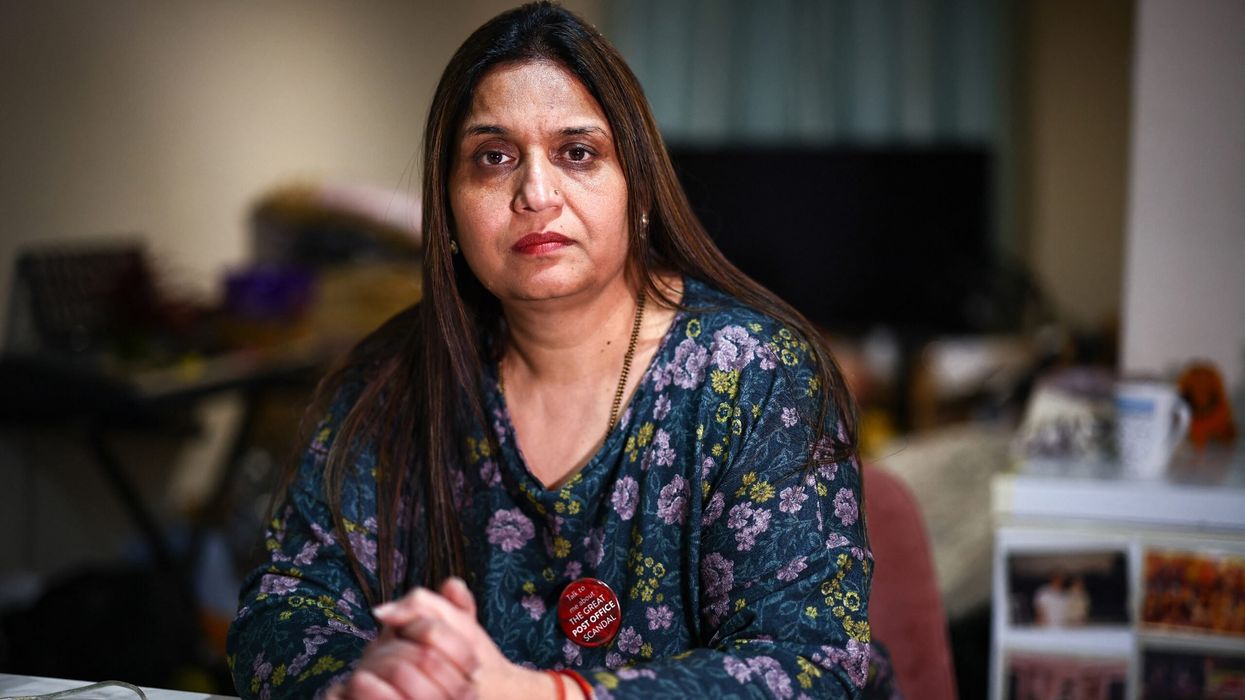A LEADING campaigner in the Post Office Horizon scandal has told Eastern Eye racism played a part in her horrific ordeal, but hoped her determination to fight back will change people’s perception of Asian women.
An inquiry into the wrongful prosecution of more than 900 sub-postmasters due to incorrect information from Fujitsu’s accounting software Horizon concluded on Tuesday (17), as Eastern Eye went to press.
Seema Misra, 48, was wrongly imprisoned in 2010 after being accused of stealing £75,000 from her Post Office branch in Surrey, where she was the subpostmistress. Documents from her case showed the investigator categorised her as “Indian/ Pakistani Types, ie Asian, etc”.
It was later revealed that staff were told to racially classify suspects, including “negroid types, ie West Indian, Nigerian, African, Caribbean etc”. It also included codes for “Arabian/ Egyptian types, Chinese/Japanese types” and “dark-skinned European types”.
“I definitely believe the Post Office was institutionally racist,” Misra said on Monday (16) from Aldwych House, where she was attending the inquiry.

She noted she was referred to as a “test case” by David Smith, former managing director of the Post Office.
“They probably thought this Indian lady will lose the case, go to prison, and then will probably hide away and won’t speak out,” said Misra.
“In our culture, if somebody goes to prison, they lose their self-respect. It’s very difficult to go back into society.”
Misra, who was jailed while two months pregnant, said had she not been expecting her second child, she would have ended her own life “for sure”.
At least four deaths by suicide have been recorded among those caught up in the scandal.

Misra served four months behind bars, and then spent four months having to wear an electronic bracelet, even while giving birth. Her conviction was finally overturned in 2021, along with those of around 40 of her colleagues.
Running a Post Office “could have been our adventure” and the start of a “business empire”, but “all that was shattered,” said Misra, who arrived in the UK from India in 1994.
She thought about returning to India, but decided against it as she still harboured the hope of a better life for her family.
Misra said she remains “very angry” at the Post Office, which she said “could have stopped it a while ago”, but instead “hid the evidence and made innocent people suffer”.
Though Misra has received interim payments for the money she lost out on, and is due to claim a substantial compensation settlement, she said she is determined to continue to fight for justice and see those responsible “behind bars”.
“If we let the Post Office get away with it today, tomorrow another organisation will do the same thing,” she told Eastern Eye. “We want each and every single person who was responsible for the scandal – Royal Mail, the Post Office, people from the government – we need to question them and put them behind bars.”

Misra described herself as a naturally quiet person, but said she hopes through her vocal campaigning she can inspire other women of south Asian heritage.
“The message I want to get across is if you’re suffering, make sure you raise your voice – don’t give up,” she said. “In the beginning I used to say, ‘why me?’ But I am very spiritual person – I thought maybe God wants some strong people to fight the Post Office, and I am a chosen one.
“When I went to prison, there was no media coverage of these cases. It was a difficult decision for us to go to the media, but we were like, ‘even if we can save one life, it will be worth it’.
“I’m happy at least my life is worthwhile fighting for the right cause.”
Berkshire sub-postmaster Hasmukh Shingadia, 65, told Eastern Eye he had suicidal thoughts after being accused of stealing £16,000.
He was handed an eight-month suspended sentence at Oxford crown court, ordered to pay more than £2,000 in costs and complete 200 hours community service. After a 10-year legal battle, his conviction was overturned in July 2021.
At the time of the ordeal, he said he did not think racism played a part in the way he was treated, as he had spoken to other sub-postmasters from different backgrounds who had similar experiences.
However, having heard evidence at the inquiry, Shingadia said: “What came out is that racism actually played a big part. The attitude of the people on the help desk when you called them up was racist. The language used was derogatory. The attitudes of some of the managers was similar – the way they treated Asian and black people was different to white people.”
Varchas Patel’s father, Vipin, 70, was wrongly convicted of fraud and given an 18-week suspended prison sentence in 2011. He said his father’s ordeal led to the rapid deterioration of his health and he is now only able to walk with crutches.
He revealed his family – who live in a small village, Horspath in Oxfordshire – were victims of racist abuse from the community and Post Office investigators.
“I do believe race played a part with some of the Post Office investigators,” Patel told Eastern Eye. “One of the individuals who worked for Fujitsu in the call centre, when he gave evidence to the inquiry, said every time a south Asian subpostmaster called, they would put the phone down or put the line on mute, and then shout across an open plan office, ‘we have another scamming Patel’.”
He said he believed there was an element of jealously involved in how his father was treated by the community and Post Office investigators.
“I believe jealousy goes hand in hand with an element of race,” Patel said. “A good portion of sub-postmasters and sub-postmistresses were from south Asian backgrounds. When people are hardworking, and they are entrepreneurial, and they are very progressive, there is an element of jealousy present.
“Without a shadow of a doubt, the local parish council had elements of racism, even to this day while my dad is in the process of trying to acquire some compensation.
“I have some of the leaked parish council emails I have obtained and submitted to the lawyers. For example, one of the comments says, ‘East is East, West is West. We all understand their culture’. That’s quite a racial slur in itself.
“Now that the scandal has come to light, a small number of brave individuals in the village have said to me, ‘if it wasn’t the colour of your skin, if you were white, or you were English, your parents would have been treated differently’.
“They have confirmed that in the village we live in Oxfordshire, race played a part in my father receiving more harassment, intimidation and abuse.”
The inquiry, chaired by Sir Wyn Williams, has been gathering evidence on the decisions leading up to the wrongful convictions since February 2022.
The closing statements reflected on all phases of the inquiry, including evidence from former and current politicians, executives who were in the Post Office’s highest ranks during the scandal and former sub-postmasters and postmistresses.
The Post Office itself took many cases to court, prosecuting 700 people between 1999 and 2015. Another 283 cases were brought by other bodies, including the Crown Prosecution Service (CPS). A final report is expected in 2025.
Shingadia said the report should be clear about the racial elements that impacted the way the Post Office carried out its investigations. “Unless it is open and honest, the prosecutions pending for people at the top cannot be completed positively,” he said. “The report has to come out completely fair because it will help prove grounds for prosecution because people have lied and covered up things. It needs to cover all angles and present all the information they have collected.”
Police investigating crimes linked to the scandal are looking at “dozens” of potential suspects, but don’t expect trials to begin until 2027.
The Post Office did not respond to requests for a comment.




